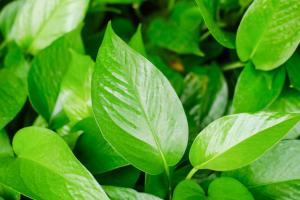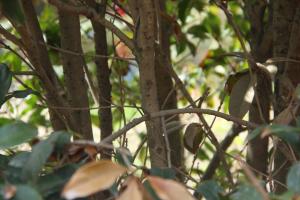What Vegetables Can You Plant Near a Black Walnut Tree
Planting vegetables near black walnut trees can be challenging since these trees release a toxic chemical called juglone. Juglone can pose a serious threat to plants that are sensitive to it. However, there are a few vegetable plants that can tolerate the presence of black walnut trees. In this article, we’ll explore some of the vegetables that you can plant near a black walnut tree.
Vegetables That Can Tolerate Juglone
Vegetables that are tolerant to juglone can grow near black walnut trees without being affected by the toxic chemical. Some of these vegetables include asparagus, beets, carrots, corn, garlic, lettuce, onions, radishes, snap beans, and squash. Planting these vegetables near black walnut trees can be a great way to make use of the available space in your garden and avoid the hassle of removing the trees.
Preparation for Planting
Before planting any vegetables near a black walnut tree, there are a few things you should do to create the best growing environment. First, make sure to remove any existing black walnut tree roots or debris that may be in the soil. Juglone is released through the tree’s roots, and even a small amount of the toxic chemical can harm sensitive plants. Secondly, amend the soil with plenty of organic matter, such as compost or aged manure, to help neutralize the effects of juglone.
Caring for Vegetables Near Black Walnut Trees
Vegetables planted near black walnut trees still require proper care to thrive. Ensure that the plants receive enough sunlight and water regularly. Monitor the soil pH and make adjustments as needed to optimize plant growth. Fertilize the plants with a balanced fertilizer to promote healthy growth and protect against nutrient deficiency.
Vegetables to Avoid Planting Near Black Walnut Trees
While there are a few vegetables that can tolerate juglone, it’s important to note that many other plants are not as resilient. It’s best to avoid planting sensitive vegetables, such as tomatoes, peppers, potatoes, and strawberries, near black walnut trees. These plants are known to be highly susceptible to the toxic effects of juglone, and planting them near black walnut trees will likely result in a failed crop.
In Conclusion
Planting vegetables near black walnut trees can be tricky, but it’s not impossible. By choosing the right vegetables and preparing the soil properly, you can create a productive and thriving garden without having to remove the trees. Remember to care for the plants properly and avoid planting sensitive vegetables near black walnut trees to ensure a successful crop.

 how many times do yo...
how many times do yo... how many planted tre...
how many planted tre... how many pine trees ...
how many pine trees ... how many pecan trees...
how many pecan trees... how many plants comp...
how many plants comp... how many plants can ...
how many plants can ... how many plants and ...
how many plants and ... how many pepper plan...
how many pepper plan...
































